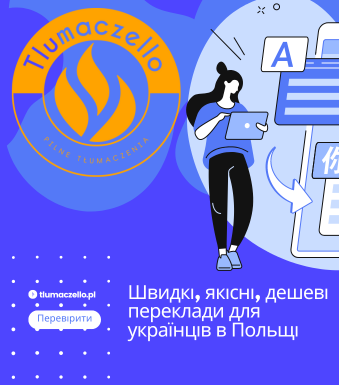From Asia to Europe: Navigating the Polish Job Market for Newcomers

Poland, a burgeoning economy in the heart of Europe, has increasingly become a destination for job seekers hailing from Asia and beyond. Lured by tales of labor shortages and expanding industries, many arrive with high hopes of securing fulfilling and well-compensated employment. However, the reality on the ground often proves to be far more complex than the rosy picture painted by recruitment agencies and casual online research. Navigating the Polish job market as a newcomer requires a pragmatic understanding of its unique challenges, cultural nuances, and potential pitfalls. This article aims to dissect the intricacies of the Polish employment landscape, offering a critical analysis of the opportunities and obstacles faced by those seeking to establish their careers in this dynamic, yet often demanding, European nation.
The Myth of Open Doors: Are Polish Jobs Really Accessible?
The narrative of Poland as a land of abundant job opportunities for foreigners, especially in sectors like IT, manufacturing, and hospitality, is often exaggerated. While there’s undeniable demand, particularly for skilled labor, access is rarely as straightforward as advertised. Polish employers, influenced by historical factors and economic realities, often prioritize candidates with EU citizenship or pre-existing Polish language skills, creating a significant hurdle for newcomers from Asia. The perceived “open door” is often a revolving door, requiring significant effort, resources, and adaptability to successfully navigate.
Moreover, the types of jobs readily available to newcomers are frequently concentrated in lower-paying sectors with less job security and limited opportunities for advancement. While these positions may provide a foothold, they often fall short of the expectations of skilled professionals seeking long-term career growth. The competition for higher-skilled, better-compensated roles is fierce, requiring not only impressive qualifications but also a demonstrable understanding of the Polish cultural context and business practices.
Finally, the legal framework surrounding employment for non-EU citizens, while generally improving, remains complex and bureaucratic. Obtaining work permits and navigating visa requirements can be a time-consuming and costly process, often requiring the assistance of specialized legal professionals. This administrative burden can further deter potential employers and disadvantage newcomers compared to their EU counterparts. The reality is that accessibility hinges on far more than just advertised vacancies; it demands resilience, strategic planning, and a realistic assessment of the challenges involved.
Beyond the Brochure: Confronting Poland’s Hiring Realities
Recruitment brochures and online job postings often present an idealized view of working conditions and career prospects in Poland, neglecting the nuanced realities faced by foreign workers. While Poland boasts a growing economy, it’s crucial to understand that wages, particularly in certain sectors, may not be as competitive as in Western European countries. The cost of living, especially in major cities like Warsaw and Krakow, is steadily increasing, potentially eroding the financial benefits of relocating for employment.
Furthermore, the prevalent work culture in Poland, while evolving, can still be characterized by a hierarchical structure and a preference for traditional management styles. Newcomers accustomed to more egalitarian or collaborative environments may find it challenging to adapt to the established norms. Understanding the unspoken rules of Polish workplace etiquette and communication is essential for building rapport with colleagues and superiors.
Beyond the formal aspects of employment, practical issues such as finding suitable accommodation, navigating the healthcare system, and accessing essential services can also pose significant challenges. These logistical hurdles, often overlooked in recruitment materials, can significantly impact the overall experience of working and living in Poland. A successful transition requires proactive planning and a willingness to adapt to unfamiliar systems and cultural practices.
Language Barriers & Bias: Why Skills Aren’t Always Enough
While English is increasingly prevalent in Polish business environments, particularly in international corporations, the lack of Polish language proficiency remains a significant barrier to entry and advancement. Many employers, even those advertising English-speaking positions, prioritize candidates who possess at least a basic understanding of Polish, especially for roles involving client interaction or internal communication. Relying solely on English limits job opportunities and hinders integration into the local community.
Moreover, implicit bias, though often unintentional, can also play a role in hiring decisions. Cultural stereotypes and preconceived notions about the capabilities of workers from specific countries can influence employer perceptions, even in the absence of overt discrimination. Overcoming these biases requires demonstrating a strong work ethic, a willingness to learn, and a proactive approach to building relationships with Polish colleagues.
The combination of language barriers and unconscious bias can create a challenging environment for newcomers, potentially leading to feelings of isolation and frustration. Actively investing in language learning and seeking opportunities to engage with Polish culture can help to mitigate these challenges and foster a sense of belonging. Remember, demonstrating cultural sensitivity and a genuine interest in integration can significantly enhance your prospects in the Polish job market.
Exploitation or Opportunity? Securing Fair Labor Practices
While Poland has made strides in strengthening its labor laws, the risk of exploitation remains a concern for vulnerable workers, particularly those unfamiliar with their rights and legal protections. Unscrupulous employers may attempt to circumvent regulations by offering below-minimum wages, imposing excessive working hours, or failing to provide adequate health and safety measures. It is crucial to thoroughly research potential employers and understand your rights as a worker under Polish law.
Recruitment agencies, while often helpful in connecting job seekers with opportunities, can also be a source of exploitation. Some agencies may charge exorbitant fees, make misleading promises, or fail to provide adequate support to their clients. Before engaging with any recruitment agency, it is essential to verify their credentials, read reviews, and carefully scrutinize the terms of their services.
Protecting yourself from exploitation requires proactive due diligence and a willingness to seek help when needed. Familiarize yourself with Polish labor laws, document all employment-related agreements, and be prepared to report any violations to the relevant authorities. Remember, you have the right to fair treatment and a safe working environment, regardless of your nationality or immigration status.
Bridging the Cultural Gap: Integration as Market Advantage
Understanding and adapting to Polish culture is not merely a social courtesy; it’s a strategic advantage in the job market. Employers value candidates who demonstrate an understanding of Polish customs, business etiquette, and communication styles. Making an effort to learn about Polish history, traditions, and values can significantly enhance your ability to build rapport with colleagues, clients, and superiors.
Actively participating in local cultural events, joining community groups, and engaging with Polish language learners can help to foster a sense of belonging and integration. Building genuine relationships with Polish people can provide valuable insights into the local culture and business environment, as well as expand your professional network.
Furthermore, recognizing and respecting cultural differences in communication styles is crucial for effective teamwork and conflict resolution. Directness, while valued in some cultures, may be perceived as confrontational in Poland. Learning to communicate in a respectful and diplomatic manner can help to avoid misunderstandings and build stronger working relationships. Embracing Polish culture is not about abandoning your own identity; it’s about expanding your cultural intelligence and enhancing your ability to thrive in a new environment.
Long-Term Strategy: Building a Career, Not Just a Job in Poland
Many newcomers approach the Polish job market with a short-term perspective, focusing solely on securing immediate employment. However, a long-term strategy is essential for building a fulfilling and successful career in Poland. This involves investing in continuous professional development, networking strategically, and proactively seeking opportunities for advancement.
Consider pursuing further education or training to enhance your skills and qualifications. Polish universities and vocational schools offer a wide range of programs that can help you to stay competitive in the job market. Networking with industry professionals and attending industry events can provide valuable insights into emerging trends and career opportunities.
Furthermore, proactively seeking feedback from your superiors and colleagues can help you to identify areas for improvement and demonstrate your commitment to growth. Taking initiative and volunteering for challenging projects can showcase your skills and abilities, increasing your visibility within the organization. Building a career in Poland requires a long-term commitment and a proactive approach to personal and professional development. It’s about viewing your initial employment as a stepping stone towards achieving your long-term career aspirations.
The Polish job market, while presenting opportunities for newcomers from Asia and other regions, demands a realistic assessment of its complexities and challenges. Moving beyond the idealized narratives often presented by recruitment agencies requires a proactive approach to understanding cultural nuances, navigating legal frameworks, and safeguarding against potential exploitation. By focusing on language acquisition, cultural integration, and long-term career planning, newcomers can not only secure employment but also build fulfilling and successful careers in this dynamic European nation. The key to success lies in embracing adaptability, resilience, and a willingness to learn and grow within the Polish context.











